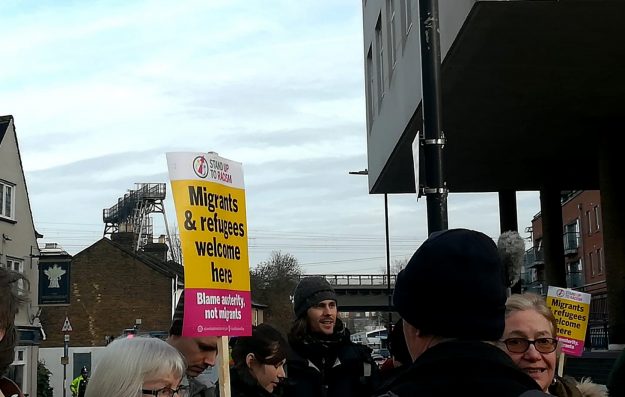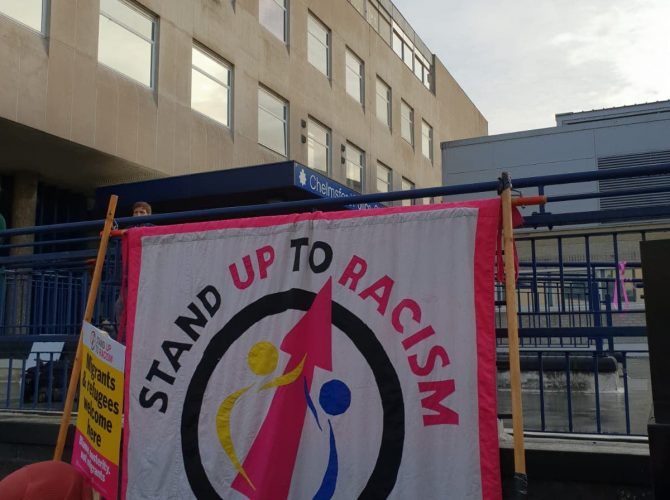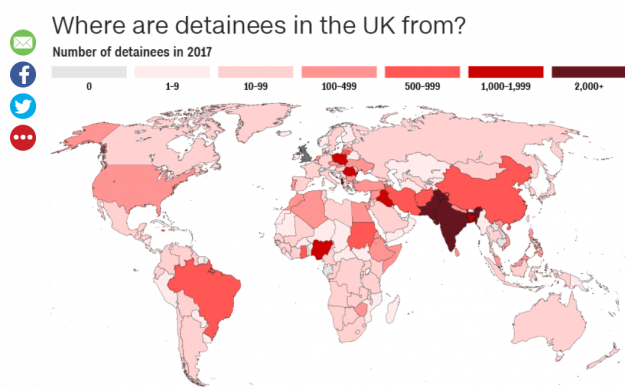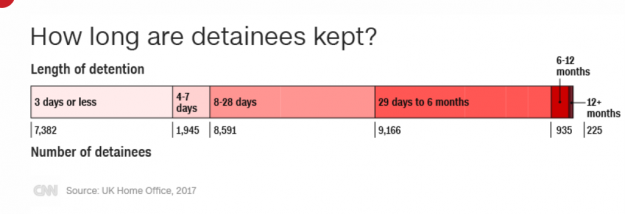A former Cardiff University staff member was acquitted of terrorism offences last week along with other members of the ‘Stansted 15’ who stopped a chartered deportation flight in 2017. Is this the first fight won against deportations from the UK?

“Later tonight there is a charter flight leaving for Jamaica. It’s the first flight to Jamaica since the Windrush scandal,” says Emma Hughes, a few hours before the beginning of her trial last Wednesday.
Pink colour has become the symbol of solidarity and support for the Stansted 15 protestors, whose actions at Stansted Airport in March 2017 became emblematic of the fight against the deportation of immigrants from the UK.
The group entered the airfield at Stansted two years ago in order to stop the removal of individuals to Nigeria and Ghana who according to the Home Office was “illegally living in the country with no papers”.
EmmaHughes, who is a former Cardiff University member of the staff with a PhD from the School of Journalism, Media and Cultural Studies, is one of the 15 protesters accused of terrorism offences for their actions at Stansted Airport.
Emma is one of the nine women and six men who were facing severe charges for ‘intentional disruption of services at an aerodrome’.
Emma has been involved in helping people who live in the UK, and they face deportation. “When we went to that protest, we had no idea that they were going to be such serious charges, such as terror-related legislation,” she says.

Kerry Moore, a senior lecturer at Cardiff University, shared a letter of solidarity to Stansted 15 activists on Twitter last week.
The letter, signed by 58 of her colleagues, was asking for “the Stansted 15 to be spared prison and for the right of citizens to peacefully protest and defend human rights”.
“I remember when the charge changed. It was a warm day in July and I sat in a café in Vauxhall looking at some e-mails, and it came through. I opened the e-mail, and it was talking about maximum life imprisonment and I was just horrified,” stated Emma.
The so-called Stansted 15, a group of political activists, were chained around the plane that was about to take off, as an act of solidarity and support and prevention of perceived human rights abasements.
The charges imposed by the judges initially were aggravated trespass, and later they were charged under the 1990 legislation.
The Boeing 767 chartered by the Home Office, was on its way to repatriate 60 people from the UK to Sierra Leone, Nigeria and Ghana.
After the Windrush scandal, where dozens of people considered as illegal immigrants by the Home Office were falsely deported, activist organisations, victims and volunteer communities never stopped fighting against the abolition of deportation and detention centres in the UK.

The day of trial on 6 February 2019, at Chelmsford Crown Court, found Emma and the other 14 activists worried about the judge’s decision since the possibility of spending time in jail was still on the table.
They had already packed their “prison bags” with the essentials so that they could be prepared for the worst-case scenario.
Flora, Anne Marie and Sarah, current activists and former deported women who have experienced the terrible conditions in detention centres were outside the Court, raising their voices against government’s policy towards families, women and workers who have been treated as illegal immigrants in a country where they were living for more than 40 years.

Anne Marie has been detained two times, once in 2016 and once in 2017. Flora has been detained in the most prominent women’s detention centre at Campsfield House.
“Just seeing people forced into vans in detention centres is heartbreaking”, says Flora.
They describe detention centres as prisons and as a step closer to death. In many cases, people spent more than a year jailed in detention centres, and many committed suicides.
Some were deported to countries where they had no right to live and work, had no families, or where they were afraid of being killed. Some of them didn’t make it, but Flora, Marie and Sarah were standing next to the Stansted 15 activists as a link of the activism and solidarity chain for the group who tried to save people’s life.
After a long trial, with the crowd of people outside the Court chanting and cheering, the judge’s decision was announced. Three defendants were given suspended jail terms, and the other 12 were given community orders.
The 15 protesters after their exit from the Court, under applauses and cries, stated that they would keep on fighting against inequality and injustice.
One big battle for the demolition of detention centres and “blind” deportation was won.
